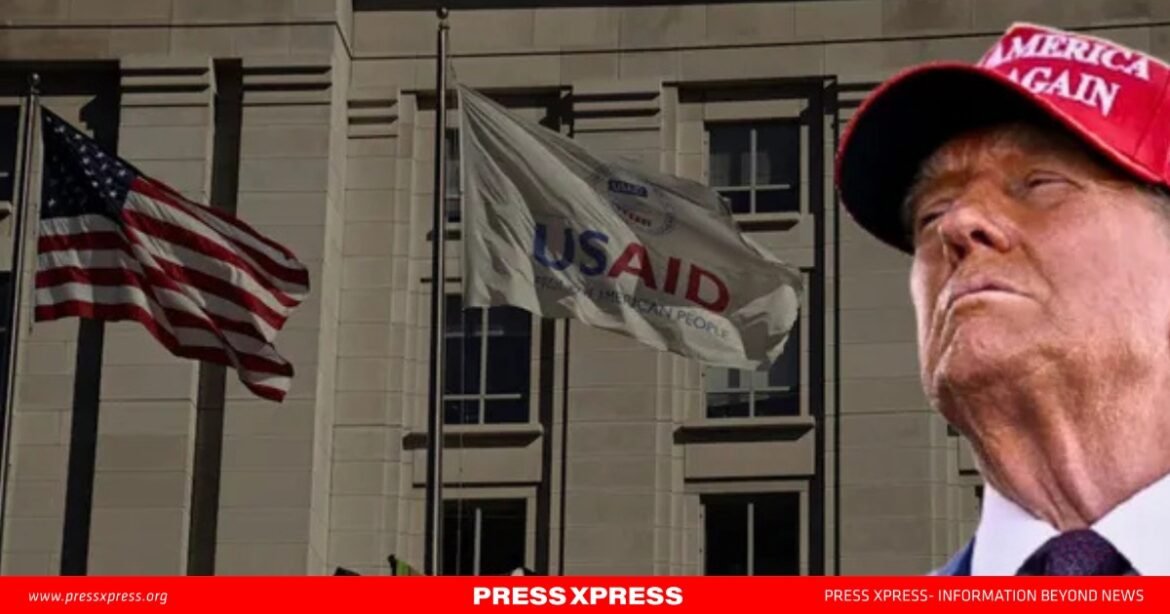In a move that has sent shockwaves through the global aid and development community, U.S. President Donald Trump has suspended all operations of the United States Agency for International Development (USAID). The decision, reportedly influenced by Trump’s advisor and business magnate Elon Musk, is part of an effort to integrate USAID into the U.S. State Department. However, critics argue that this move not only jeopardizes critical humanitarian assistance worldwide but also weakens U.S. diplomatic influence and global standing.
The Scope of the USAID Suspension
USAID, established in 1961 by President John F. Kennedy, has been a cornerstone of U.S. foreign policy, distributing nearly $40 billion annually in global aid. From emergency disaster relief to long-term development projects, USAID has played a crucial role in addressing poverty, hunger, and health crises worldwide.
However, following Trump’s executive order:
- USAID employees were instructed not to report to headquarters
- The agency’s website was taken down, making crucial data inaccessible
- Hundreds of employees had their emails deactivated
- Two senior security officials were placed on administrative leave
The U.S. Secretary of State, Marco Rubio, who has taken over as USAID’s acting head, stated that aid operations will continue, but only in alignment with U.S. foreign policy priorities. Yet, no clear plan has been presented on how this transition will be managed.
Political Motives and Legal Concerns
Trump and Musk have long criticized USAID, accusing it of inefficiency, corruption, and being dominated by “left-wing radicals.” At a press conference, Trump stated, “The radical leftists running USAID have been committing massive fraud.” However, he provided no concrete evidence to support these claims.
Elon Musk, who heads a newly created Office of Government Efficiency (DoGE), has been vocal about his desire to cut government spending. Over the weekend, he posted on social media, “USAID is beyond reform… We are shutting it down.” His deep business ties with China have also raised concerns that economic interests may be influencing policy decisions.
Legal experts have labeled this move unconstitutional and a violation of federal law, as USAID was established by Congress and its budget is legislatively mandated. Maryland Senator Chris Van Hollen called the suspension “an illegal and reckless decision that undermines national security.” The move is expected to face significant legal challenges in the coming weeks.
Immediate and Long-Term Global Consequences
Humanitarian Crises Intensify
USAID funds numerous programs combating food insecurity, malnutrition, and disease outbreaks.
With this suspension:
- Emergency relief operations in conflict zones such as Sudan, Yemen, and Syria could halt
- Vital health programs, including vaccine distribution in Africa, could suffer severe setbacks
- Climate adaptation initiatives in vulnerable regions could be abandoned
Senator Johnny Olzewski warned that previous aid suspensions led to prison guards in Syria abandoning their posts, allowing ISIS militants to escape. The humanitarian impact could be catastrophic if funding is not restored quickly.
U.S. Diplomatic Influence Declines
For decades, USAID has been a critical tool in American soft power diplomacy, strengthening alliances and promoting U.S. values abroad.
Cutting aid could:
- Weaken relationships with key allies in Africa, Latin America, and Asia
- Allow geopolitical rivals like China and Russia to expand their influence through their own development programs
- Undermine counterterrorism efforts by destabilizing regions reliant on U.S. assistance
Economic and Security Implications
Aid programs not only benefit recipient countries but also U.S. businesses and global trade. USAID-funded projects support American agriculture and energy exports.
The suspension of these programs could:
- Negatively impact U.S. businesses that supply food aid and medical equipment
- Create economic instability in countries that rely on USAID assistance, leading to increased migration to the U.S
- Strengthen extremist groups by worsening economic conditions in fragile states
Challenges and Legal Battles Ahead
Democratic lawmakers have already announced plans to challenge the USAID suspension in federal courts. They argue that the executive branch cannot unilaterally dissolve or absorb USAID without Congressional approval. However, given the current political landscape, legal proceedings could take months, leaving millions worldwide in precarious situations.
Additionally, bipartisan criticism suggests that even some Republican lawmakers may oppose the move due to its potential impact on national security and global stability.
Conclusion
Trump’s suspension of USAID marks an unprecedented shift in U.S. foreign aid policy. While his administration argues it is necessary to eliminate waste and realign spending with national interests, the global ramifications are immense. From exacerbating humanitarian crises to diminishing U.S. geopolitical influence, this decision could have long-lasting effects on international stability.
With legal battles looming and global pressure mounting, the question remains: Will this suspension be overturned, or will it become a defining moment in the decline of U.S. global leadership?


